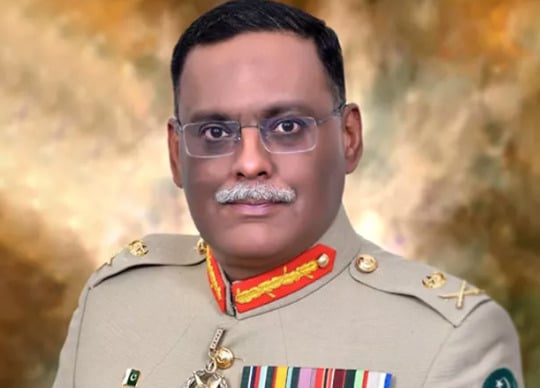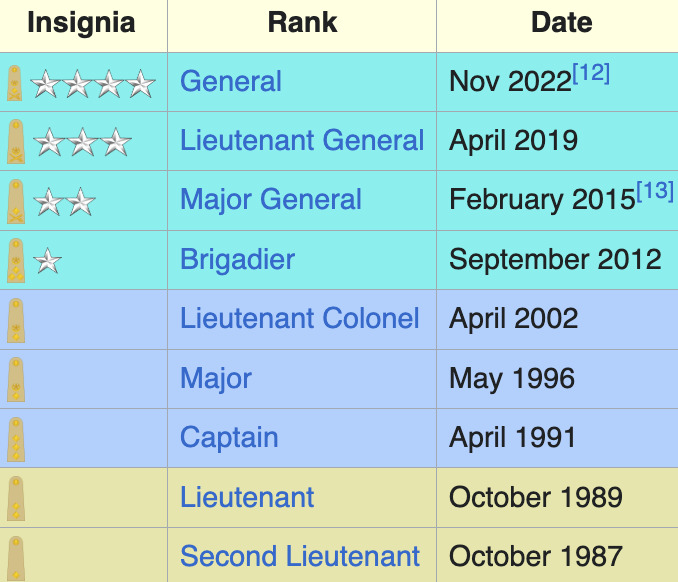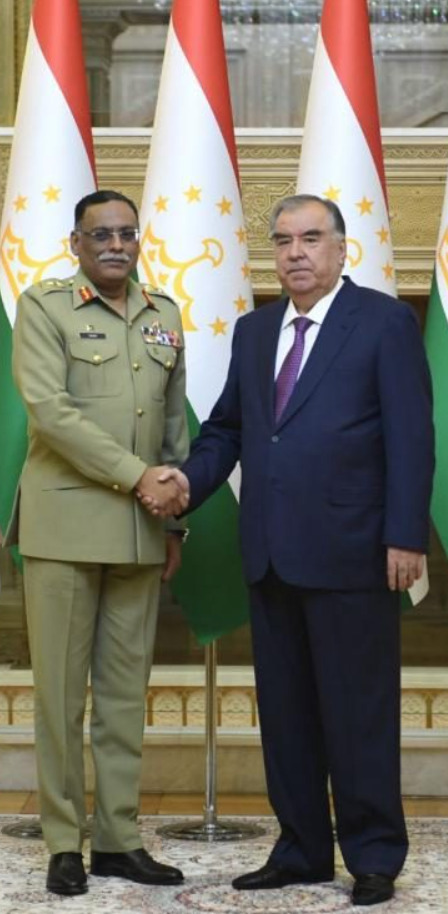Sahir Shamshad Mirza (18th Chairman Joint Chiefs of Staff Committee) Height, Family, Biography
Quick Info→
Profession: Pakistan Army Personnel
Religion: Islamic
Hometown: Mulhal Mughlan, Chakwal, Pakistan
Some Lesser Known Facts About Sahir Shamshad Mirza
- Sahir Shamshad Mirza is a Pakistani four-star Military General who is currently serving as the 18th chairman of the Joint Chiefs of Staff Committee.
- Sahir was born and raised in Mulhal Mughlan, a small village in Chakwal District, Punjab, Pakistan. He belongs to a middle-class family.
- At a very young age, Mirza lost both his parents and was raised as an orphan.
- After completing his military training at the Pakistan Military Academy, he was commissioned into the 8th Battalion of the Sind Regiment on 10th September 1987.
- During his early military career, he was appointed as Brigade Major of two Infantry Brigades and as General Staff Officer (GSO) Grade 1 at the Military Operations Directorate.
- Sahir Shamshad Mirza wrote an article titled, “Subcontinental Security and Its Impact on World Security: Challenges and the Way Forward.” He published this in the National Defence University (NDU)Journal, Pakistan, 2009.
- In 2015, Sahir served as the Director General of Military Operations (DGMO), where he was part of the core team supervising all military operations against militants in North Waziristan.
- Sahir Mirza had participated in the United Nations peacekeeping missions in 2016.
- In 2016, he was a member of the Quadrilateral Coordination Group, which aimed to broker intra-Afghan talks. The countries involved were Pakistan, China, Afghanistan, and the United States.
- In 2018, he was appointed as Vice Chief of the General Staff of the Pakistan military.
- In 2019, he became the Chief of General Staff of the Pakistan military.
- From 2021 to November 2022, he served as the Commander of the Rawalpindi Corps (X Corps). During his tenure as Commander, he oversaw operations of the Line of Control and working borders.
- In November 2022, he was appointed as the 18th chairman of the Joint Chiefs of Staff Committee.
- During his tenure, he participated in the Sierra Leone Civil War (1991), Insurgency in Khyber Pakhtunkhwa (2004), and Operation Zarb-e-Azb (2014).
- In May 2025, during the ongoing conflict between India and Pakistan, Sahir Shamshad Mirza took control of the Pakistan army amid dissatisfaction with the leadership of General Asim Munir and assumed command of the army. (Many people believe that Asim Munir worked as a catalyst for the recent conflict between India and Pakistan, after the Pahalgam attack that killed 26 tourists. His provocative speech, in which he called Kashmir Pakistan’s “jugular vein” and reiterated the ‘two-nation theory,’ is seen by many as a trigger for the violence that followed, where attackers reportedly targeted victims based on their religion. This incident has heightened tensions between the two nations.)











